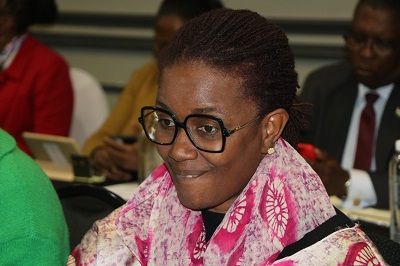By Thandiwe Kubere
MASERU – With Lesotho moving and working towards attaining the sustainable development goals for Agenda 2030, arose a need for a strategic map to guide the country through the years, taking into consideration its determinations and progress towards that vision.
It is important to note that by 2030, the country hopes to have achieved goals including; zero hunger, good health and wellbeing, gender equality, clean water and sanitation, quality education, green economy, a development in sustainable economy with private-sector led and more, thus portraying the significance of having a good guideline.
The government of Lesotho through different ministries, seemingly made efforts to work coherently and effectively with its partners to support the society at all levels to address their major challenges and ensure inclusivity, as well as making further progress in accelerating the implementation of the Agenda 2030 of the SDGs.
The SDG Investor Map was described as a market intelligence tool aimed at identifying development sectors and investment opportunity areas for SDG impact. The tool aims to provide business intellect for identifying opportunity areas with highest business and development impact in the context of Lesotho and inform investment decisions. The validation process in Lesotho has identified manufacturing (consumer goods), agriculture and agroprocessing, renewable energy, health care, and financial services as critical for the development of Lesotho, and with the highest potential to attract private investments.
The initiative has been stalling since July 2022 due to multiple resignations of intenational consultants. It is currently led by two national consultants with technical support from the Africa Sustainable Finance Hub and UNDP. This validation session has convened the national stakeholders in government, private sector and development partners to endorse the identified investment opportunity areas and mobilise partnerships for implementation. In particular, the SDG Investor Map is proposed to inform and facilitate coordination of the national strategies for mobilising domestic and foreign investment and enable partnerships.
UNDP Deputy Residence Representative Nessie Golakai-Gould, acknowledged the role played by the Lesotho National Development Corporation (LNDC) for their collaboration in consolidating the investment opportunities and ensuring that they are all aligned to the national priorities and the comparative advantage of Lesotho, to guarantee high investment returns as well as a strong impact on sustainable development in Lesotho.
“Just to remind you, the government of Lesotho is still in the recovery path to steer the economy in the growth trajectory, guided by the national ambitions for achieving sustainable development, including the Agenda 2030. The SDG Investor Map process is therefore tailored to the government’s desire to realise private-sector led growth through innovative and technology-anabled investments in agriculture, mining, tourism and manufacturing”, she said.
The map process is also expected to provide the government with necessary market information to realize the intersections for development and investment, which will enable the government to mobilize and direct private sector investments towards SDGs impact.
“The SDG map process takes forward the proposal of the Lesotho Intergtated National Financing Framework to support the government to realize and to manage financing for accelarated implemantation and achievement of the sustainable development goals of the nation’s priorities”
She highlighted that the development finance assesment concluded that private sector financing through business and Diaspora remittances has the highest potential to impact the development of Lesotho but has today remained under-utelized and largely untapped. She noted that this scan helped the government to identify existing and potential sources of development financing flows and some of the obstacles to mobilization and management of these resources. The validation workshop therefore encouraged the government to leverage on the SDG investor map tool to integrate private sector in the development of Lesotho and to fill the existing financing gap through private capital.
The policy white spaces (gaps) assessment of the SDG investor map process provides a necessary framework for a responsive and catalytic investment climate reform agenda. She therefore concluded by iterating UNDP’s commitment to support the national efforts for achieving inclusive and sustainable development, working with the national partners and stakeholders.
Thecontribution and input of the national stakeholders in the process was to help identify priority sectors that have been found to address development needs of the country, being Commercial Agriculture, Consumer goods (Manufacturing), Financial Services, Healthcare and Renewable energy, which are also aligned to the priorities of the Government. Through this process, the priority Sub-sectors were further analyzed, to determine their investment-worth and policy requirements. A list of investment opportunity areas has been developed based on desk research and initial consultations.
The meeting tookinto consideration the dynamics of the local private sector and the business environment constraints highlighted by the private sector assessment conducted early in the process. The identified main hindrances to private sector development in the country included inadequate business skills, viable and investment-worthy business models and access to financing.
Therefore, the government was encouraged to utilize the findings from the assessment to define pathways for private sector engagement and capacity building, and to identify opportunities within the SDG investor map process to address the identified private sector challenges.
Golakai-Gould emphasized that the platform complements strategic national initiatives such as the nation brand of LNDC, and photobank with LTDC, and should support efforts to enable Lesotho to take advantage of development opportunities, such as those presented by AfCFTA, as well as strengthen mechanisms to coordinate and rally the investment mobilization agenda.
Following this validation workshop, the Ministry of Finance and Development Planning pledged to finalize the Lesotho SDG investor map with the prioritized Investment Opportunities Areas. It further appealed for the commitment of all stakeholders to hold the Map in reference to inform policy and strategies to mobilize private capital and investments.


